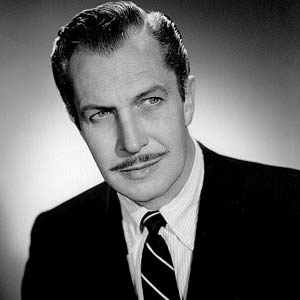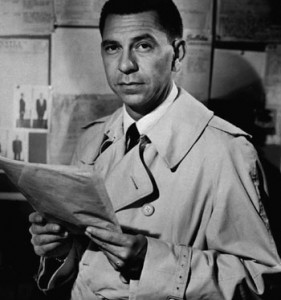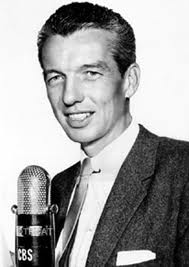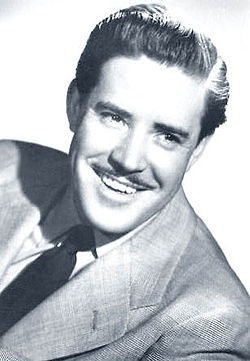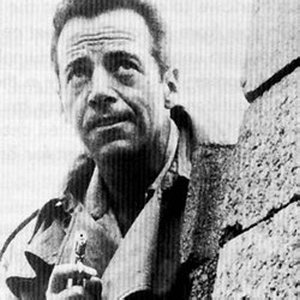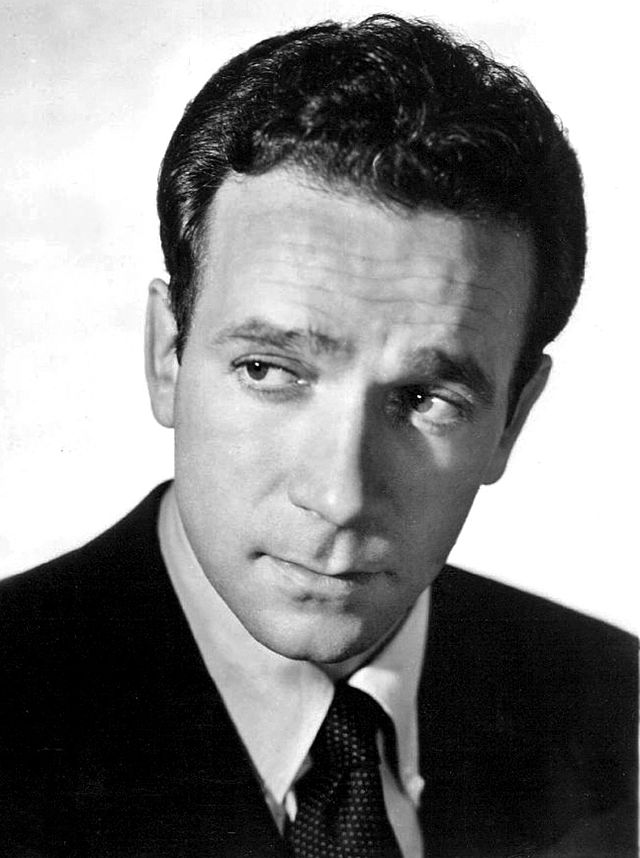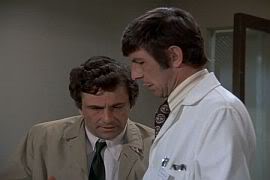To see my review of the film, click here.
I Was a Communist for the FBI was a syndicated radio show produced by Ziv and began to air in 1952 and ‘53 with Dana Andrews playing Matt Cvetic with 78 separate broadcasts prepared with only a few repeats. While the film focused on the end of Cvetic’s career, this focused on the beginning and middle.
The important thing to understand about the I Was a Communist for the FBI radio show is that it had far less to do with the real Cvetic than the film. This is subtly hinted at at the end of the program with lines like, “Many of the incidents portrayed are based on the experiences of Matt Cvetic…” which also meant that many were not.
Ziv often did programs were the lead character was based on a real person but the incidents and stories were mostly works of fiction. This could be seen in Ziv’s 1959-61 Television series, “Lock Up.” There really was an attorney named Herbert L. Maris but the televised version’s exploits had little to do with the real life Philadelphia lawyer.
The fact of the matter is that no real person’s life has enough interesting juicy incidents to make up seventy-eight television or radio episodes. This in part explains the “unreal” nature of, I Was a Communist for the FBI which will have Cvetic trying to take over a Boy Scout troop in one episode, escorting a Soviet Agent around in another, trying to reform the image of a Communist front group in another, and in yet another being tasked with sabotaging early computer technology. While the fictional Cvetic’s exploits are rarely unreal, it’s hard to swallow that the same man got all of these assignments. However, the format of the show requires a suspension of disbelief similar to how we accept Joe Friday changing departments every week on Dragnet.
At their best, episodes of I Was a Communist for the FBI manage to portray tactics that Communists used in America or in other countries. While the movie’s communist leaders were bald-faced opportunists, the cell group leaders in the radio show are mostly fanatics (though occasionally hypocritical ones) The Communist Party of the radio is far more like a cult than a political party as members deride “Borgeois sentimentality” and demand absolute obedience and dedication to the party. The ruthlessness of the party plays out more in the radio than the film because of the greater scope and variety of the episodes because we see so many different episodes. The communists are willing to blackmail, steal, or murder. They’ll turn a father’s son against him to keep him in line. While publicly championing the little guy, they’ll crush anyone who gets in their way.
It also featured a great psychological element. For Cvetic, the fear of discovery is constant. The Communists don’t trust each other in the first place as he’s frequently followed by fellow “comrades” and even has his phone tapped and listened to. He faces tough questions. Does he help someone who sounds like she might want to leave the party or does he act like a “good party” member in the belief that she’s testing him?
In one episode he’s gotten into the bad habit of talking in his sleep and to his horror finds out that the Comrade he’s staying at happens to record the room at night. At the same time, the FBI often doesn’t tell Cvetic everything or he can’t make contact. All this makes Cvetic constantly on edge In one episode, Cvetic was diagnosed with hypertension which is something that anyone who followed the series could readily believe.
The theme of isolation and self-loathing is here just like the film, though its more intimate as Cvetic’s narration carries the story. The episode loops around eventually to one thought, “I’m a Communist for the FBI and I walk alone.”
The series, like most other great Ziv shows in the era featured solid production values and most great radio talent of the era appeared including Gerald Mohr, Virginia Gregg, and Harry Bartel. Olan Soule played Agent Beaker of the FBI with many actors playing party bosses and official. The best of these was William Conrad who portrayed the gruff and sinister Comrade Revchinko.
Most of the episodes had a very similar cadence of Cvetic being given an assignment by the Communists and him trying to undermine it with the help of the FBI. One exception to that was, “The Black Gospel” in which the villain was a nihilist who threatened to out Cvetic as an FBI informant unless he went along with their anarchist scheme.
The series was not without flaws. It managed to undercut its own point in a couple of ways. First and foremost, if you’re going to portray the Communists as such an existential threat, it would be more believable if these fictional foes weren’t so unbelievably thick. Cvetic is constantly involved in operations in which everyone else is arrested or the Party’s ends are defeated. Over the course of more than seventy episodes and the Party is constantly giving him commendations while never considering that everything they put him on falls apart. By contrast, in the film, Cvetic succeeded as a Communist and was thus able to provide information to the FBI by gaining the Party’s confidence through success.
While the series included some very plausible Communist plots, there are a few stories that have premises that are a little too silly. I could see Communists trying to gain access to early computers and sabotage U.S. research. I have a little more trouble with a Communist plot to take over the local 4H club. (Yes, seriously.) There was also the episode where Cvetic got a Communist front group to give blood and Revchinko insisted on having Communist goons hijack the Red Cross truck and steal the blood, so that the blood wouldn’t get to the distribution center because that’s worth risking exposure and the capture of an operative.
In the end, I Was a Communist for the FBI is worthwhile series. It succeeded in portraying Communism the soul-crushing system it was that left more than 100 million dead in its wake and brilliantly showed the mental strain that double age and informants for the FBI faced. It has tense suspenseful moments found However, it’s quality is hampered by repetitive and occasionally contrived stories that make the Communists seem hapless. Still, it’s a unique series in the golden age of radio that makes for an enjoyable listen.
Rating: 3.75 out of 5.0
If you enjoyed this post, you can have new posts about Detective stories and the golden age of radio and television delivered automatically to your Kindle.
